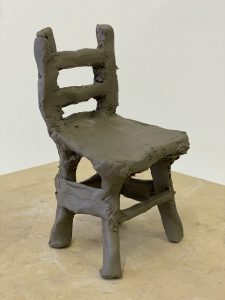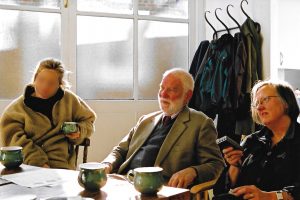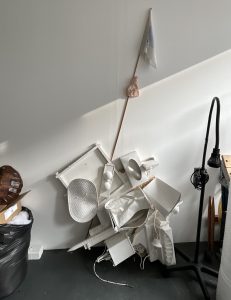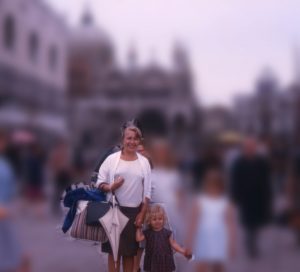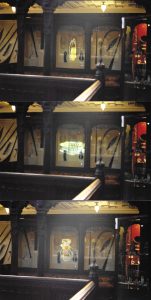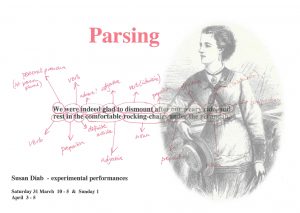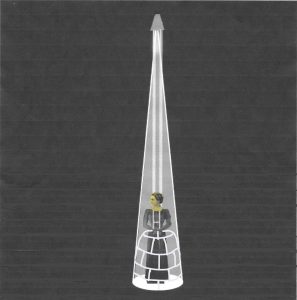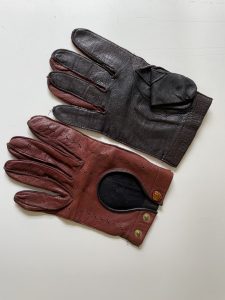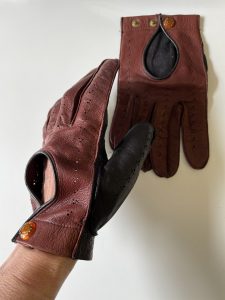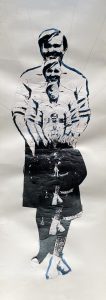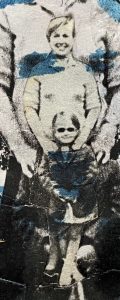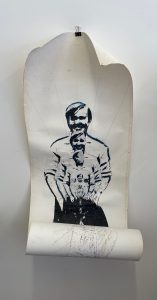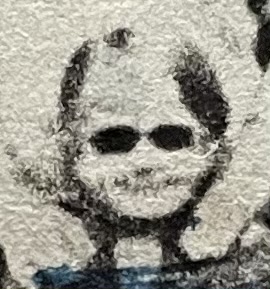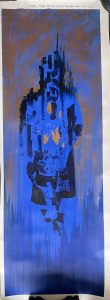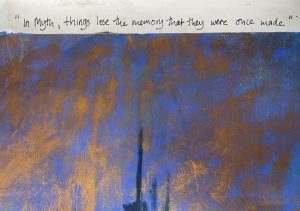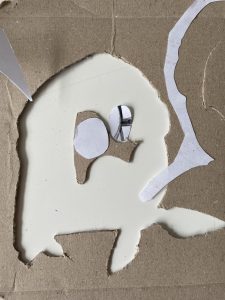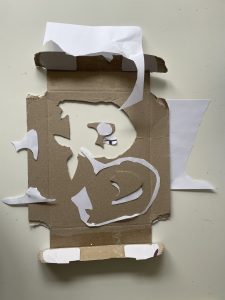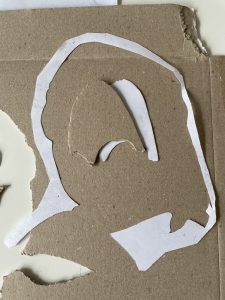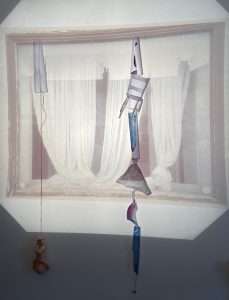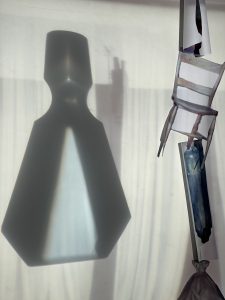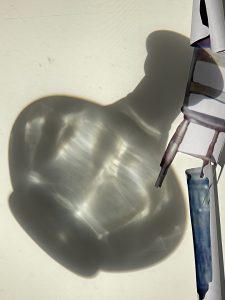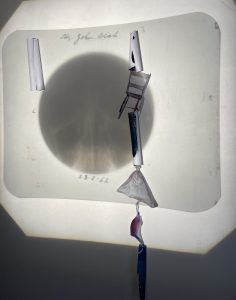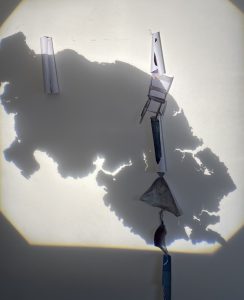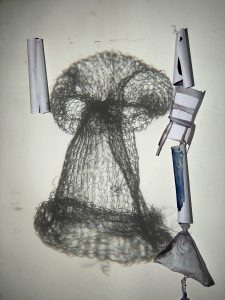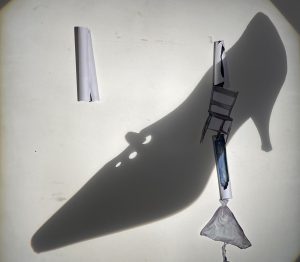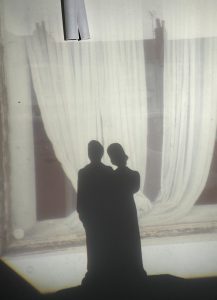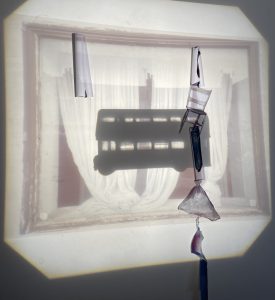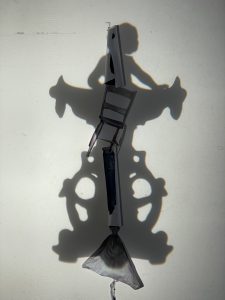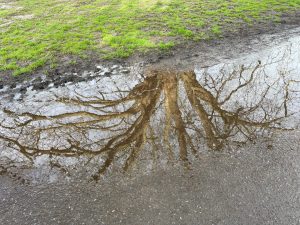Being an incomplete document containing a summary write up of notes and annotations made in the books and on index cards as I am reading
The Young Man (TYM)
p.23
Le jeune homme
p.25:
“J’avais conscience qu’envers ce jeune homme, qui était dans la première fois des choses, cela impliquait une forme de cruauté. Invariablement, à ses projets d’avenir avec moi, je répondais: “le present suffit”, ne disant jamais que le present n’était pour moi qu’un passé dupliqué. Mais la duplicité, don’t il avait l’habitude de m’accuser dans ses accès de jalousie, ne se situait pas, contrairement à ce qu’il imaginait, dans les désirs que j’aurais pu avoir pour d’autres que lui, ni même, comme il en était persuadé, dans le souvenir de mes amants. Elle était inhérente à sa presence à lui dans ma vie, qu’il avait transformée en un étranger et continuel palimpseste.”
Songs
‘Don’t make me over’, Nancy Holloway, 1964 p.32 TYM
I will write to avenge my people (Avenge)
j’écrirai pour venger ma race’
p.13 “And I conceived of writing as nothing less than the possibility of transfiguring reality.”
“Et je ne concevais l’écriture que comme la possibilité de transfigurer le réel.”
p.16 in English text
https://www.nobelprize.org/uploads/2022/12/ernaux-lecture-french.pdf
(accessed 5/3/2024)
‘Il y a d’un côté la langue dans laquelle ils ont appris à nommer les choses, avec sa brutalité, avec ses silences, celui, par exemple, du face à face entre une mère et un fils, dans le très beau texte d’Albert Camus, « Entre oui et non ». De l’autre, les modèles des œuvres admirées, intériorisées, celles qui ont ouvert l’univers premier et auxquelles ils se sentent redevables de leur élévation, qu’ils considèrent même souvent comme leur vraie patrie. Dans la mienne figuraient Flaubert, Proust, Virginia Woolf : au moment de reprendre l’écriture, ils ne m’étaient d’aucun secours. Il me fallait rompre avec le « bien écrire », la belle phrase, celle-là même que j’enseignais à mes élèves, pour extirper, exhiber et comprendre la déchirure qui me traversait. Spontanément, c’est le fracas d’une langue charriant colère et dérision, voire grossièreté, qui m’est venue, une langue de l’excès, insurgée, souvent utilisée par les humiliés et les offensés, comme la seule façon de répondre à la mémoire des mépris, de la honte et de la honte de la honte.’
p.19 Engl. Avenge:
“Finding the words that contain both reality and the sensation provided by reality would become, and remain to this day, my ongoing concern in writing, no matter what the subject.”
- 20 – 21
“The prerequisite of sensation has for me become both the guide and guarantee of the authenticity of my research. But to what end? Not to tell the story of my life nor free myself of its secrets but to decipher a lived situation, an event, a romantic relationship, and thereby reveal something that only writing can bring into being and perhaps pass on to the consciousness and memories of others.”
p.22
“When the unspeakable is brought to light, it is political.”
23
“The recognitions of my work by the Swedish Academy is a sign of hope for all female writers.”
The Years
37, “nothing was thrown away”
166-68, all of these pages
“She doesn’t know what she wants from these inventories, except that maybe through the accumulation of memories of objects, to again become the person she was at such and such a time.”
[Me: the cut glass vase of yellow roses mentioned in Mum’s letter]
189: “She feels herself in several different moments of her life that [p. 190] float on top of each other. Time of an unknown nature takes hold of her consciousness and her body too. It is a time in which past and present overlap, without bleeding into each other, and where, it seems, she flickers in and out of all the shapes of being she has been. It is a sensation she has had before, from time to time. Perhaps drugs could bring it on, but she has never taken any, for she values pleasure and lucidity above all else. Now, in a state of expansion and deceleration, she takes hold of the sensation. She has given it a name, ‘the palimpsest sensation’, though the word is not quite accurate if she relies on the dictionary meaning, ‘a manuscript on which the original writing has been scratched out to make room for later writing’. She sees it as a potential instrument of knowledge that is not only for herself, but general, almost scientific, though a knowledge of what, she doesn’t know. In her writing project about a woman who has lived between 1940 and today, which grips her ever more tightly with sorrow and even guilt for not committing it to paper, she would like to begin with this sensation, no doubt influenced by Proust, out of a need to base her undertaking on a real experience.” . . . p.191 “She is not sure the ‘palimpsest sensation’ has a more heuristic power than another sensation, also frequent, whereby her ‘selves’ are characters in books and films and she is the woman in Sue Lost in Manhattan and Claire Dolan, which she saw not long ago, or Jane Eyre, Molly Bloom – or Dalida.”
p.221
“She’s given up trying to deduce this form that is able to contain her life from the sensation she has on the beach with her eyes closed or in a hotel room, that sense of replicating herself and physically existing in several places she’s known over her life, and thus attaining a palimpsest time.” And the rest of this paragraph.
Paragraph bottom of p. 221 to top of p.222 is this the x-y axes paragraph I was looking for that so coincided with my own axes sensation noted down somewhere in a sketchbook?
That’s beautiful about light on page 224
I’d like the work to be full of light, use the windows
Shame
(Fitzcarraldo)
p.28
‘Naturally I won’t opt for narrative, which would mean inventing reality instead of searching for it. Neither shall I content myself with merely picking out and transcribing the images I remember: I will process them like documents, examining them from different angles to give them meaning. In other words, I will carry out an ethnological study of myself.
(It may not be necessary to write all this down, but I won’t be able to start writing properly until I have some idea of the shape this writing will take.)
71
‘We stopped being decent people, the sort who don’t drink or fight and who dress properly to go into town. Despite a brand-new smock to start the term, my beautiful missal, my top marks and my daily prayers, I would never be like the other girls again. I had seen the unseeable. I knew something that the Catholic school and its sheltered environment should have guarded me against, something that implicitly bracketed me with those whose violent, alcoholic nature and mental illness gave rise to stories ending in ‘really, it’s sad to see that.’
‘The worst thing about shame is that we imagine we are the only ones to experience it.’
72
‘It was the first time I saw my mother through the eyes of the private school. In my memory, this scene, although barely comparable to the one in which my father tried to kill my mother, is its sequel. As if the sight of my mother’s loose, unsupported flesh and suspect nightgown had exposed the way we lived and who we truly were.’
p.79 and 80 memories as images
Exteriors
No annotations – how strange. Reread.
Happening
p.17
‘One week later Kennedy was assassinated in Dallas. By then I had lost interest in that sort of thing.’
p.19
‘I want to become immersed in that part of my life once again and learn what can be found there. This investigation must be seen in the context of a narrative, the only genre able to transcribe an event that was nothing but time flowing inside and outside of my. The diary I kept back then will provide the necessary dates and evidence to establish what happened. Above all I shall endeavour to revisit every single image until I feel that I have physically bonded with it, until a few words spring forth, of which I can say, ‘yes, that’s it.’ I shall try to conjure up each of the sentences engraved on my memory which were either so unbearable or so comforting to me at the time that the mere thought of them today engulfs me in a wave of horror or sweetness.’
37
(I realize this account may exasperate or repel some readers; it may also be branded as distasteful. I believe that any experience, whatever its nature, has the inalienable right to be chronicled. There is no such thing as a lesser truth. Moreover, if I failed to go through with this undertaking, I would be guilty of silencing the lives of women and condoning a world governed by the patriarchy.)
38.
(Last night I dreamed that I was back in 1963, desperately trying to get an abortion. When I woke up, I realized the dream had plunged me into the same state of despondency and helplessness I had experienced at the time. Then it struck me that the book I was writing was a doomed enterprise. Like with an orgasm when, for a split second, we feel we are in ‘the heart of things’, what I was trying to convey through writing had been achieved spontaneously and without any effort – making my literary venture a lost cause.
But now that impression has gone, the urge to write is all the more pressing since it has been justified by my dream.)
44.
I stared at passers-by. I thought of that game where you have to make out silhouettes concealed among the lines of a drawing. Somewhere in the crowd there might be one of the students I had known in 1963: I can see them so clearly when I write, yet today they have become invisible to me. At a table nearby sat a handsome girl – chestnut hair, dark complexion, small, pouting lips – who reminded me of LB. I fondly imagined that she might be her daughter.)
46
Whenever I think about that week’s holiday in Le Mont-Dore, I picture a shimmering stretch of snow and sunshine reaching into the dark recesses of January. No doubt because our primitive memory chooses to portray the past as a basic juxtaposition of light and shade, day and night.
46-47
(Writing invariably raises the issue of proof: apart from my diary and my journal, I have no sure indication of what I thought and felt back then because of the abstract, evanescent nature of what goes through our minds.
The only concrete evidence I have stems from the lingering sensations associated with people and things outside of me – the sparkling snow at Le Mont-Dore, Jean T’s bulging eyes, the ballad of Soeur Sourire – which bring me proof of reality. True memory has to be material.)
[she had her abortion in January 1964 which is when I was born]
p.50
(To experience anew the emotions I felt back then is quite impossible. The closest I can get to the state of terror thrust upon me that week is to pick out any hostile, harsh-looking woman in her sixties waiting in line at the supermarket or the post office and to imagine that she is going to rummage around in my loins with some foreign object.)
52
‘For many years I saw that room and those curtains the same way I had seen them from my reclining position on the bed. Now it might be a room streaming with light, with Ikea furniture, belonging to a young executive who has bought the whole floor. However, I am convinced that the walls still resonate with the memory of the girls and women who went there to have a probe thrust into them.’
55
(If I had to depict that episode of my life in a single image, I would paint a small table with a formica top pushed up against a wall and an enamel basin with a probe glowing on the surface. Slightly to the right – a hairbrush. I don’t believe there is a single museum in the world whose collections feature a work called The Abortionist’s Studio.)
58-59 lots of visualising on these two pages
One day I took a sheet of paper and drew the Passage Cardinet the way I saw it as I was leaving the abortionist’s building: tall façades converging towards a crack in the background. The only time in my adult life when I have felt like drawing.’
74
I have rid myself of the only feeling of guilt in connection with this event: the fact that it had happened to me and I had done nothing about it. A sort of discarded gift. Among all the social and psychological reasons that may account for my past, of one I am certain: these things happened to me so that I might recount them. Maybe the true purpose of my life is for my body, my sensations and my thoughts to become writing, in other words, something intelligible and universal, causing my existence to merge into the lives and heads of other people.
Simple Passion
p.21
During all this time, I felt I was living out my passion in the manner of a novel, but now I am not sure in which style I am writing about it whether in the style of a testimony, or possibly even the sort of confidence that can be found in women’s magazines, maybe a manifesto or a statement, or perhaps a critical commentary.
p.22
As for the origins of my passion, I have no intention of searching for them in my early history, which can be reconstituted with the help of a psychoanalyst, or in my recent history or for that matter in the cultural standards governing emotion which have influenced me since childhood (Gone with the Wind, Phèdre or the songs of Edith Piaf are just as decisive as the Oedipus complex). I do not wish to explain my passion – that would imply that it was a mistake or some disorder I need to justify – but simply to describe it.
The only criteria to be taken into account, perhaps, should be of a material order: the time and freedom at my disposal throughout the affair.
28
Naturally I feel no shame in writing these things because of the time which separates the moment when they are written – when only I can see them – from the moment when they will be read by other people, a moment which I feel will never come. By then I could have had an accident or dies, a war or a revolution could have broken out. This delay makes it possible for me to write today, in the same way I used to lie in the scorching sun for a whole day at sixteen, or make love without contraceptives at twenty: without thinking about the consequences.
(It is a mistake therefore to compare someone writing about their own life to an exhibitionist, since the latter has only one desire: to show themselves and to be seen at the same time.)
p.39
Yet, when I began to write, I wanted to stay in that age of passion, when all my actions – from the choice of a film to the selection of a lipstick – were channelled towards one person. The past tense that I used spontaneously in the first lines of this book suggests endless repetition and conveys the belief that ‘life was better in those days’. It also generated a pain that replaced the past trauma of waiting for his phone calls and visits. (Even now, rereading those first pages has the same distressing nature as seeing and touching the bathrobe he used to slip on at my place and take off just before he got dressed to leave. There is one difference, though: these pages will always mean something to me, to others too maybe, whereas the bathrobe – which matters only to me – will lose all significance one day and will be added to a bundle of rags. By writing this, I may also be wanting to save the bathrobe from oblivion.)
41 writing and universality
(Am I the only woman to return to the scene of an abortion? Sometimes I wonder if the purpose of my writing is to find out whether other people have done or felt the same things or, if not, for them to consider experiencing such things as normal. Maybe I would also like them to live out these very emotions in turn, forgetting that they had once read about them somewhere.)
43 Palimpself
Is the world beginning to mean something again outside of A.? The cat trainer from the Moscow Circus, the bathrobe, Barbizon, the entire text assembled in my head day after day since the first night with words images and gestures, all the signs forming the unwritten novel of a passion are beginning to fall apart. Of the living text, this book is only the remainder, a minor trace. One day it will mean nothing to me, just like its living counterpart.
47
I feel as if this last visit never took place. It doesn’t belong to our story, it’s just a date, 20 January. The man who returned that evening wasn’t the man I was carrying inside me throughout the year when he was here, and when I was writing about him. I shall never see that man again. Yet it is that surreal, almost non-existent last visit that gives my passion its true meaning, which is precisely to be meaningless, and to have been for two years the most violent and unaccountable reality ever.
In this photograph, the only one I have of him, a bit blurry, I can see a tall, fair man, bearing a slight resemblance to Alain Delon. Everything about him was precious to me – his eyes, his mouth, his penis, his childhood memories, his voice, and the decisive way he took hold of things.
I had decided to learn his language. I kept, without washing it, a glass from which he had drunk.
I had wished that the plane flying back from Copenhagen would crash if I were never to see him again.
Last summer in Padua, I pressed this photo to the wall of St Anthony’s tomb – along with people pressing a handkerchief or a folded slip of paper bearing their prayers – so that he would come back.
Whether or not he was ‘worth it’ is of no consequence. And the fact that all this is gradually slipping away from me, as if it concerned another woman, does not change this one truth: thanks to him, I was able to approach the frontier separating me from others, to the extent of actually believing that I could sometimes cross over it.
I measured time differently, with all my body.
I discovered what people are capable of, in other words, anything: sublime or deadly desires, lack of dignity, attitudes and beliefs I had found absurd in others until I myself turned to them. Without knowing it, he brought me closer to the world.
He had said, ‘You won’t write a book about me.’ But I haven’t written a book about him, neither have I written a book about myself. All I have done is translate into words – words he will probably never read, which are not intended for him – the way in which his existence has affected my life. An offering of a sort, bequeathed to others.
When I was a child, luxury was fur coats, evening dresses, and villas by the sea. Later on, I thought it meant leading the life of an intellectual. Now I feel that it is also being able to live out a passion for a man or a woman.
I Remain in Darkness
p.48
Her roommate, who is suffering from the same condition, but in the early stages, walks around with her toiletry bag all day. She lays it down on her bedside table, carefully puts it away into a drawer, then takes it out again. That’s exactly what my mother used to do at my place. Having something to connect one to the real world, something of one’s own.
When I was twelve, I would spend hours lovingly admiring and touching a manicure set made of black patent leather. We had so few possessions: every one of them was a dream.
49
I recollect that terrible moment when she began ‘going downhill’. She kept going round in circles, searching the house for imaginary objects.
50
The lady next to her spends half an hour tidying her shelves, taking out all her belongings and putting them back again.
56
She had never wished to set herself boundaries but because of her working class background she had adopted those of religion and puritanism, seen as the nearest thing to dignity. Personally, I have never cared about boundaries.
57
He keeps sorting and moving around the books in his library, drawing comfort from his intellectual possessions, making up for his terrible feelings of inadequacy for not having got past his baccalauréat.
58
I show her the little chimney sweep above her bed, a present fro a friend in Annecy. She gazes at it and murmurs: ‘I used to have one like that.’
60
The dishevelled hair, the hands searching for each other, the right grasping the left like an unknown object. She can’t find her own mouth. Every time she tries, the cake ends up askew.
Look at the Lights, my Love
4
We choose our objects and our places of memory, or rather the spirit of the times decides what is worth remembering.
15
And slash and burn all these objects of transmission.
25
For a long time I did not know that Auchan belonged to a family, the Mulliezes, who also own Leroy Merlin, Kiloutou, Decathlon, Midas, Flunch, Jules, etc. I don’t’ imagine that many of the people here today are aware of it. I wonder what knowing it has changed for me. They are shadows, mythical beings. In Annecy, it was once rumoured that the Fournier family – creator of the first Carrefour in that city – ate from golden dishes.
29
The less money one has, the more carefully one must shop, making no mistakes. More time is needed. A list must be made. The best deals in the sales flyer must be selected. This is a form of economic labour, uncounted and obsessive that fully occupies thousands of women and men. The beginning of wealth, of the levity of wealth, is discernible in the act of taking an item from a shelf of food without first checking the price. The humiliation inflicted by commercial goods: they are too expensive, so I’m worth nothing.
41
At times, here, I feel like a smooth surface reflecting other people and the signs hanging over their heads.
57
Isn’t coming to the shopping center a way of being admitted to the spectacle of a party? Immersed, truly, not through a TV screen, in light and wealth, and worth as much as things.
80
I stopped writing in my journal.
As I do every time I cease to record the present, I feel I am withdrawing from the movement of the world, giving up not only narrating my days, but seeing them too. Because seeing in order to write is to see in a different way. It means to distinguish objects, individuals, and mechanisms, and to give their existence value.
A Man’s Place
18
A while later I started writing a novel in which my father was the main character. Halfway through the book I began to experience feelings of disgust.
I realize now that a novel is out of the question. In order to tell the story of a life governed by necessity, I have no right to adopt an artistic approach, or attempt to produce something ‘moving’ or ‘gripping’. I shall collate my father’s words, tastes and mannerisms, the main events of his life, all the external evidence of his existence, an existence which I too shared.
No lyrical reminiscences, no triumphant displays of irony. This neutral way of writing comes to me naturally, it is the very same style I used when I wrote home telling my parents the latest news.
19
(of her grandfather)
He was a hard man, nobody dared pick a quarrel with him. Life was not all roses for his wife. His meanness was the driving force which helped him resist poverty and convince himself that he was a man. What really enraged him was to see one of the family reading a book or a newspaper in his house. He hadn’t time to learn how to read or write. He could certainly count.
20
My grandmother even had style. On feast days she wore a cardboard bustle, and she didn’t piss standing up and fully dressed, like most country women did, simply because it was more convenient.
22
(her father)
He managed to learn how to read and write properly. He liked learning. (In those days it was just ‘learning’, like ‘eating’ or ‘drinking’.) He liked drawing too: heads or sometimes animals. At the age of twelve, he was due to take the primary certificate. My grandfather took him out of school and got him a job on the same farm as him.
25
The war revolutionised people’s lives. The villagers took up the yo-yo and drank wine instead of cider when they went to the café.
…
When he returned home, he decided to give up culture. That’s what he always called farming. The other meaning of the word, and its spiritual implications, helf no interest for him.
27
In her wedding photograph, her knees are visible. Under the half-veil hugging her forehead, she is staring hard at the camera. She looks like Sarah Bernhardt. My father is standing at her side, with his small moustache and starched white collar. Neither of them is smiling.
29
Facing up to the situation meant that luxuries were out. No aperitifs or tinned delicacies except on Sundays. It also meant being on bad terms with the family, whom they had treated liberally at first, to show they had the means. They were always afraid they would eat into their capital.
32
I am writing slowly. By choosing to expose the web of his life through a number of selected facts and details, I feel that I am gradually moving away from the figure of my father. The skeleton of the book takes over and ideas seem to develop of their own accord. If on the other hand I indulge in personal reminiscences, I remember him as he was, with his way of laughing and walking, taking me by the hand to the funfair to see the huge, frightening merry-go-rounds, and I forget about everything that ties him to his own social class. Each time I face this dilemma, I have to tear myself from the subjective point of view.
Naturally, I experience no joy in writing this book, an undertaking in which I must remain close to the words and sentences I have heard. Occasionally I have resorted to italics. Not because I wish to point out a double meaning to the reader and so draw them into my confidence,
33
Something I have always rejected, whether by means of irony, pathos or nostalgia. But simply because these particular words and sentences define the nature and the limits of the world where my father lived and which I too shared. It was a world in which language wsa the very expression of reality.
40
Through necessity our possessions became sacred. My parents saw greed and envy in everything they heard, even when it came from their own daughter. When I told them: ‘One of the girls went to see the châteaux of the Loire,’ they would snap angrily, ‘You can go later on in life. Be happy with what you’ve got.’ A continual wanting, never satisfied.
They only really longed for things for the sake of it, because in actual fact they didn’t know what was beautiful or what people were expected to admire. My father always followed the painter or the carpenter’s advice when it came to choosing colours and shapes, nothing fancy, just the standard thing. No sense that some people surrounded themselves with objects one by one. No decorations in their bedroom, just a few framed photographs, some table-mats made for Mother’s Day and, on the mantelpiece, the large china bust of a child which the furniture man had given away as a free gift when they bought the corner settee.
His motto: Better to be the head of a dog than the tail of a lion.
49
Now it is imperative that I unravel these memories, all [p.50] the more so since I have long suppressed them, believing them to be of no consequence. Only a humiliated memory had enabled me to preserve them. I surrendered to the will of the world in which I live, where memories of a lowly existence are seen as a sign of bad taste.
55
He used to say I was a good learner never a good worker. Work was only ever done with your hands.
57
Maybe I am writing because we no longer had anything to say to each other.
67
Several months have passed since I started this narrative last November. It has taken me a long time because I find it is far more difficult to dig up forgotten memories than it is to invent them. Memory resists. … Anonymous figures glimpsed on a street corner or on a crowded bus, unwittingly bearing the stamp of success or failure, brought back to me the reality of his condition.
68
My mother was waiting for me at the barrier. She had slipped the jacket of her two-piece suit over her shopkeeper’s coat and had knotted a scarf around her head – she stopped dying her hair when I got married.
My old bedroom was still warm from the heat of the day. A small bed had been set up next to mine for the little one. After trying to read, I couldn’t get to sleep for two hours. As soon as I plugged in the bedside lamp, the wire blackened, sparks flew and the bulb went out. The lamp was in the shape of a ball resting on a marble base with a brass rabbit sitting upright, its front paws sticking out at its sides. I had once thought it very beautiful. It must have been broken for ages. Indifferent to things, they never got anything mended at home.
73
Now I have finished unearthing the legacy which I had to leave at the door when I entered the educated, bourgeois world.
75
While I was writing this book, I was also marking papers and sending out model essays because that’s what I’m paid to do. These intellectual games aroused the same feelings in me as luxury, a feeling of unreality, and wanting to cry.
A Girl’s Story
p.11
Then the Other goes away. You have ceased to interest him. He abandons you with the real, for example a stained pair of underwear. All he cares about is his own time now, and you are alone with your habit of obeying, already hard to shake: alone in a time bereft of a master.
15
Because it was her day off, she’d had time to go into town for bottles of sparkling wine, sponge fingers and Chamonix orange biscuits, but only a handful of people had stopped by her room for a drink and a snack, and quickly disappeared.
17
The time that lies ahead of my grows shorter. There will inevitably be a last book, as there is always a last lover, a last spring, but no sign by which to know them. I am haunted by the idea that I could die without ever having written about ‘the girl of ‘58’, as I very soon began to call her. Someday there will be no one left to remember. What that girl and no other experienced will remain unexplained, will have been lived for no reason. [my underlining]
18
I am endowed by shame’s vast memory, more detailed and implacable than any other, a gift unique to shame.
19
The girl in the picture is not me, but nor is she a fictional creation. There is no one else in the world I know in such vast and inexhaustible detail, which allows me to assert, for example, that
to have her ID photo taken, she went to the photographer’s studio on the Place de la Mairie with her great friend Odile, one afternoon during the February break
the corkscrew curls on her forehead are produced by rollers she pins into her hair at night, and the softness of her gaze is the result of myopia – she has removed her spectacles with their jam-jar lenses
21
This girl of 1958, who from a distance of fifty years is able to resurface and set off an interior collapse, must have a hidden, indomitable presence inside me. If the real is that which acts, produces effects, as in the dictionary definition, this girl is not me but is real inside me – a kind of real presence. [AE’s italics]
22
Even without a photo I can see her, Annie Duschesne, step off the train at S in the early afternoon of 14 August. Her hair is in a high French twist. She wears a navy blue car coat – her beige wool loden from two years before, cut shorter and dyed – and a pencil skirt in thick tweed – also resized – with a striped sailor jersey. She carries a grey suitcase, bought new six years earlier for a trip to Lourdes with her father, never used since, and a blue and white plastic bucket bag, bought the week before at the market in Yvetot.
I know what the girl is feeling at this moment, and that what she desires more than anything else is for her mother to make herself scarce, get back on the train and disappear home.
I see but do not hear her. There exists no recording of my voice of 1958, and the words we ourselves speak are [onto p.23] transcribed by memory unvoiced. Impossible to say if I still spoke with a drawling Norman cadence, the accent I must have thought myself rid of, in comparison with my forebears.
23
The girl as she was at that inconsequential moment, lost to time for over fifty years.
25
Her pride comes from being ‘the exception’, and being recognized as such by the rest of her kin, workers who at holiday meals wonder ‘where she gets it from’, this ‘gift’ of learning.
26
She has no defined self, but ‘selves’ who pass from one book to another.
27
I know her to possess a bold certainty about her own intelligence, and the power displayed by her height of five-foot-seven, her well-built body, all buttocks and thighs. She is possessed of an abstract faith in her future, which she pictures as a great red staircase like the one in the painting by Chaim Soutine, a reproduction of which she cut from the pages of the magazine Lectures pour tous. [AE’s italics]
29
They certainly do not reflect the way in which she expresses or thinks of herself, though the words of Sartre and Camus on freedom and revolt may do.
30
The fragments of my inner discourse are better preserved, I sense, in the poems and quotes I copied into a red hardcover diary from 1958, a gift from a cheese [onto p.31] supplier, which I’ve managed to hang on to through each of my moves. That is where the girl of ’58 speaks her truth by proxy, in words that draw a romanticised portrait of her being, lift her out of what she considers the flatness and brutality of the language of her milieu.
[Prévert, Laforgue, Musset, Loizeau, Proust, Dumas (fils),]
Each one of my desires has enriched me more than the always-deceitful possession of the object of my desire (André Gide).
33
In fact, I must hold myself back to keep the images from linking up with each other – an image of a room with an image of a dress and a tube of red Émail Diamant toothpaste (memory is a lunatic props-mistress), reducing me to the state of a spellbound viewer of a film utterly devoid of meaning.
(memory is a lunatic props-mistress)
35
as if I needed to be writing about what is alive, to be endangered in the way one is when writing about the living and not in the state of tranquility that prevails when people die and are consigned to the immateriality of fictional characters. There is a need [onto p.36] to make writing an untenable enterprise, to atone for its power (not its ease, no one feels less ease in writing than me) out of an imaginary terror of consequences.
38
Zazou – The zazous were a subculture in France during World War II. They were young people expressing their individuality by wearing big or garish clothing (similar to the zoot suit fashion in America a few years before) and dancing wildly to swing jazz.
https://www.google.com/search?q=meaning+of+%27zazou%27&oq=meaning+of+%27zazou%27&gs_lcrp=EgZjaHJvbWUyBggAEEUYOTIKCAEQABgPGBYYHjINCAIQABiGAxiABBiKBTINCAMQABiGAxiABBiKBTINCAQQABiGAxiABBiKBdIBCDQ5OTVqMGo3qAIAsAIA&sourceid=chrome&ie=UTF-8
(accessed 08/04/24)
45
She has slipped into the autism of her desire for another night with H, convinced she will have [onto p.46] it because of what happened between them the night before – what they did and what they have not done yet.
47
Again and again, I go over the scene, whose horror remains acute, that of having been so miserable, like a dog who begs to be petted and receives a kick instead. But I never break through the obscurity of a present gone for fifty years now. My viewing and reviewing of the scene leaves intact and incomprehensible another girl’s loathing for me.
51
She continues to believe it after learning that the blonde schoolmistress Catherine, engaged to a conscript in Algeria, as attested by her ring with a blue stone and the letters stamped FM set down next to her plate each day, has taken her place in the head instructor’s bed.
52
As I advance, the former simplicity of the story deposited in memory disappears. To go all the way to the end of ’58 means agreeing to the demolition of all the interpretations I’ve assembled over the years. No glossing over. I am not constructing a fictional character but deconstructing the girl I was.
an imposture
53
In what mode – tragic, lyrical, romantic (even comic would not be difficult) – is one to relate the girl’s experience in S, the tranquility and hubris which was judged by others – all the others – as insanity and whoredom?
54
Or should I adopt the view of French society in 1958, which reduced a girl’s entire worth to a question of ‘conduct’, and say that in her naiveté and lack of guile she is pathetic, laying the entire blame at her feet? Must I, as of now, move back and forth between one historical vision and another, between 1958 and 2014? I dream of a sentence that would contain them both, seamlessly, by way of a new syntax.
55
There is no real happiness except that of which we are aware while experiencing it (Alexandre Dumas, fils).
56
She is proud to be the object of lust, and quantity seems to her the gauge of her seduction value. She feels a kind of collector’s pride [and rest of that paragraph]
56-57
‘Stunned to see how much like Bardot I was in my behaviour with men in ’58, my blunders, my spontaneity, telling one that I had flirted with the other. No rules whatsoever. It’s the image of myself that I’ve repressed the most.’
57
Their names and surnames – eight including H and Jacques R – are listed one below the other in the last pages of a little diary from 1963, which I used to write Happening. I can no longer say why I made that inventory, which appears more than four years after my time at S.
61
Today I see a similarity between the scene of the letter and the night with H. Common to both was my complete inability to convince, to fully assert my point of view. When I go back over the corridor scene, little by little, the girl in the middle becomes depersonalised, is no longer me or even Annie D. What happened in the corridor at the campe takes us back to time immemorial, all over the planet. Everywhere on earth, with every day that dawns, a woman stands surrounded by men ready to throw stones at her. [AE’s italics]
64
Each morning as I am about to start writing, a kind of tableau appears before me – a castle and its grounds, completely overrun by the vague forms of children, dressed in blue from head to toe, and:
[next lines written like stage directions]
There is no self in the picture, only the impressions that others have made upon her, Annie D, as on a sensitive photographic plate. Nor is there a world beyond the space within the castle walls, no rest-of-the-world in that summer of ’58.
69
No words but those of a mystical variety can possibly transcribe what the girl of S feels. Only in a kind of novel now become unreadable, women’s magazine serials of the fifties, rather than the works of Colette or Sagan, can we touch the immensity, the immeasurable significance of the loss of one’s virginity, the irreversibility of the event.
70
At this very moment, out in the streets, the open spaces, on the metro, in lecture halls, and inside millions of heads, millions of novels are being written chapter by chapter, erased and revised and all of them die as a result of becoming, or not becoming reality.
71
The feeling I had was a mixture of dread and desire, as if I were about to see a medium invoke spirits of the dead.
72
All the freedom she dreamt of in Yvetot becomes reality in her jaunts to the patisserie in S to buy mocha cream cakes and coffee éclairs.
73
I have progressed very slowly, spinning out those six weeks at camp over some forty other weeks, 273 days to be exact, in order to examine them as closely as possible and make them truly live through writing, that is, to make one feel the immense depth and breadth of a summer of youth in the two hours it takes to read one hundred pages.
[my annotation: it takes much longer than two hours to read this book because of all the memories of one’s own life that it provokes.]
74-75
End of that ‘chapter’
Impossible to stop here. I cannot stop until I’ve reached a certain point in the past, which right now is the future of my story. I need to reach the time beyond the two years following the camp at S. As I sit with this page before me, those years are not the past for me but, on some deep level, if not literally, my future.
77
[The scene in this photograph could be reconstructed]
79
This room is the real that resists, whose existence I have no means of conveying except by exhausting it with words.
the real that resists
85
And what desire that exceeds the desire to understand fuels the relentless determination to find, among thousands of nouns, verbs and adjectives, those that will provide the certainty (the illusion) of having attained the greatest possible measure of reality?
86
For two years no cure can be found for the drying of my ovaries, not the Equanil tablets prescribed by the neurologist, nor the iodine drops prescribed by the gynaecologist.
[Dad took Equanil for years. He died of a ruptured stomach ulcer eventually, after diagnosed TB. I looked up Equanil once in the drugs directory and found the information that it should only be prescribed short-term because it can damage the stomach if taken for long.]
90
How are we present in the existences of other, their memories, their ways of being, even their acts? There is a staggering imbalance between the influence those two nights with that man have had upon my life, and the nothingness of my presence in his.
91
I am her ghost. I inhabit her vanished being.
92
But what is the point of writing if not to unearth things, or even just one thing that cannot be reduced to any kind of psychological or sociological explanation and is not the result of a preconceived idea or demonstration but a narrative: something that emerges from the creases when a story is unfolded and can help us understand – endure – events that occur and the things that we do?
97
In the kingdom of my sugar-filled childhood, every sorrow, every slap my mother let fly ended in the comfort of a biscuit tin or a jar of sweets.
105
To have received the key to understanding shame does not give one the power to erase it.
Simone de Beauvoir’s summons on the last page to choose: ‘I believe that [woman] has the power to choose between the assertion of her transcendence and her alienation as an object.’
110
Self-narrative, in bringing to light a dominant truth that it seeks in order to ensure a continuity of being, always neglects to consider the following: our failure to understand what we experience, at the moment we experience it; the opacity of the present, whereby every sentence and every assertion ought to be riddled with holes. [AE’s underlinings]
111
An image from that September afternoon: sitting on the bed in her room in Yvetot, facing the chest of drawers with the looking-glass above, listening to a record of Strauss waltzes, a gift from friends of my parents – insipid fare, in my opinion, but at that moment a perfect accompaniment to my sense of triumph. I revel in this moment of pure success with a violence edified by the Viennese music and the sight of my reflection in the mirror as if it represented the future and the world awaiting my arrival. It is a moment of blindness, has remained the moment of absolute error, a first step in the utterly wrong direction.
115
The shadowy forms of students slip across the spatiotemporal stage I have fixed myself for this writing … as if this purposeful setting of boundaries launched the wide-scale clearance of a memory warehouse sealed for decades.
the spatiotemporal stage
116
How does anyone who is just starting out in life muddle through the necessary ordeal of finding a way to earn a living, deal with the moment when a choice must be made, and eventually, with the feeling of being, or not being, where they ought to be? [AE’s italics]
120
an emigrant from the land of failure
122
And to move, breathe, eat and sleep in this setting, to acquire the natural use of new objects, helps her submit without protest to other things she heartily dislikes.[in the house where she was au pair in Finchley]
129
Their display stand for chocoloate bars and rolls of Smarties was level with the opening of my blue and white bag, the one I had taken to camp, and I simply shovelled them in. We soon branched out to trinkets from the shelves at Woolworth’s – lipstick, nail care and sewing supplies.
131
But because of this poem, perhaps the image that prompted its writing was able to journey through time without being altered, that of a girl alone in a teahouse with mirrors all around her, seeing herself.
134
That is how this writing differs from a fictional narrative. There can be no tampering with reality, with the this-happened element, recorded in the archives of a London court, with our names: hers as the accused and mine as witness for the defence. [AE’s italics]
135
I started to make a literary being of myself, someone [onto p.136] who lives as if her experiences were to be written down someday.
137
All this belongs to the realm of reassuring beliefs which are fated, as we age, to become more and more deeply ingrained in us, but whose truth is fundamentally impossible to establish.
On my way home, I wrote in my journal: ‘All the conference participants made a bee-line for the museums while I plunged back into my past life in North Finchley. I am not a culture hound, the only thing that matters to me is to seize life and time, understand, and take pleasure.’
Is this the greatest truth of all in this story?
139
I realize that this story is contained between two temporal boundaries related to food and blood, the boundaries of the body.
140
There is this phrase by Nietzsche that I find so beautiful: We have Art in order not to die of the Truth.’
143
It occurs to me that it all could have been written in another way, as a statement of raw fact, for example. Or based on particular details: the bar of soap from the first night, the words written in red toothpaste on the mirror, the closed door of the second night, the jukebox that played Apache in the coffee shop of Tally Ho Corner, the name Paul Anka deeply engraved on a desk at the lycée, the 45 rpm of Only You, bought with R at a record shop after we had listened to it together in a booth, and which I played on Saturday night with the lights off, slow-dancing alone in my room in Yvetot.
It is the absence of meaning in what one lives, at the moment one lives it, which multiplies the possibilities of writing.
It is the absence of meaning in what one lives, at the moment one lives it, which multiplies the possibilities of writing.
The memory of what I have written is already fading. I do not know what this piece of writing is. Even the thing I was pursuing by writing this book has dissolved. Among my papers I found a sort of note of intent:
Explore the gulf between the stupefying reality of things that happen, at the moment they happen, and, years later, the strange unreality in which the things that happened are enveloped.
the strange unreality in which the things that happened are enveloped.
